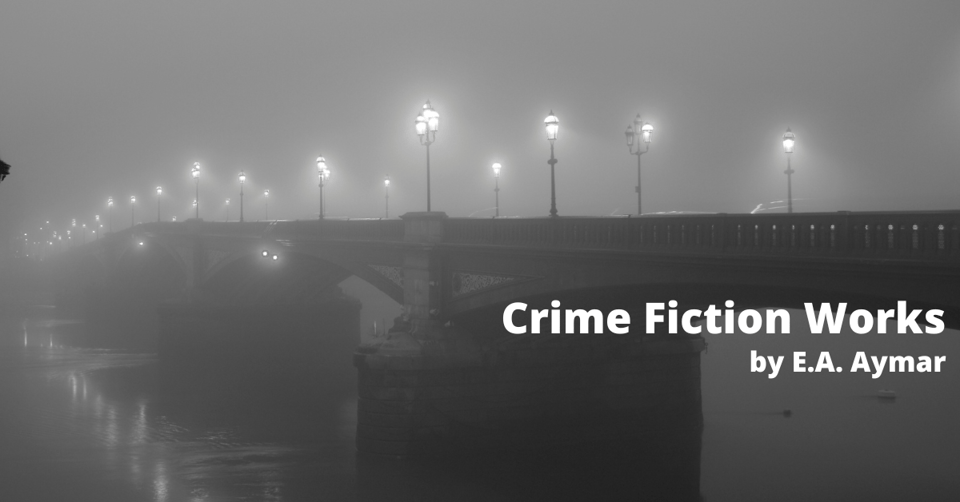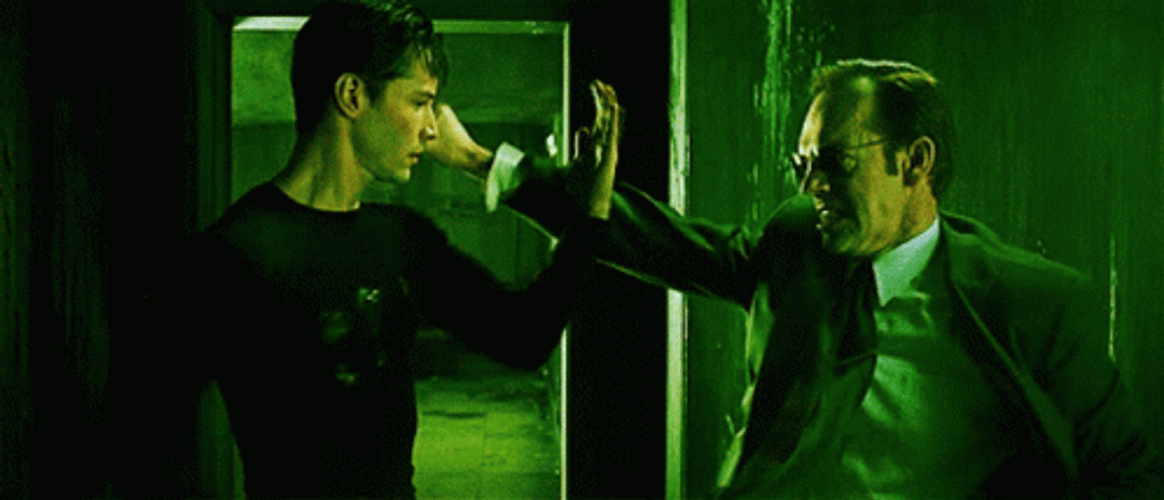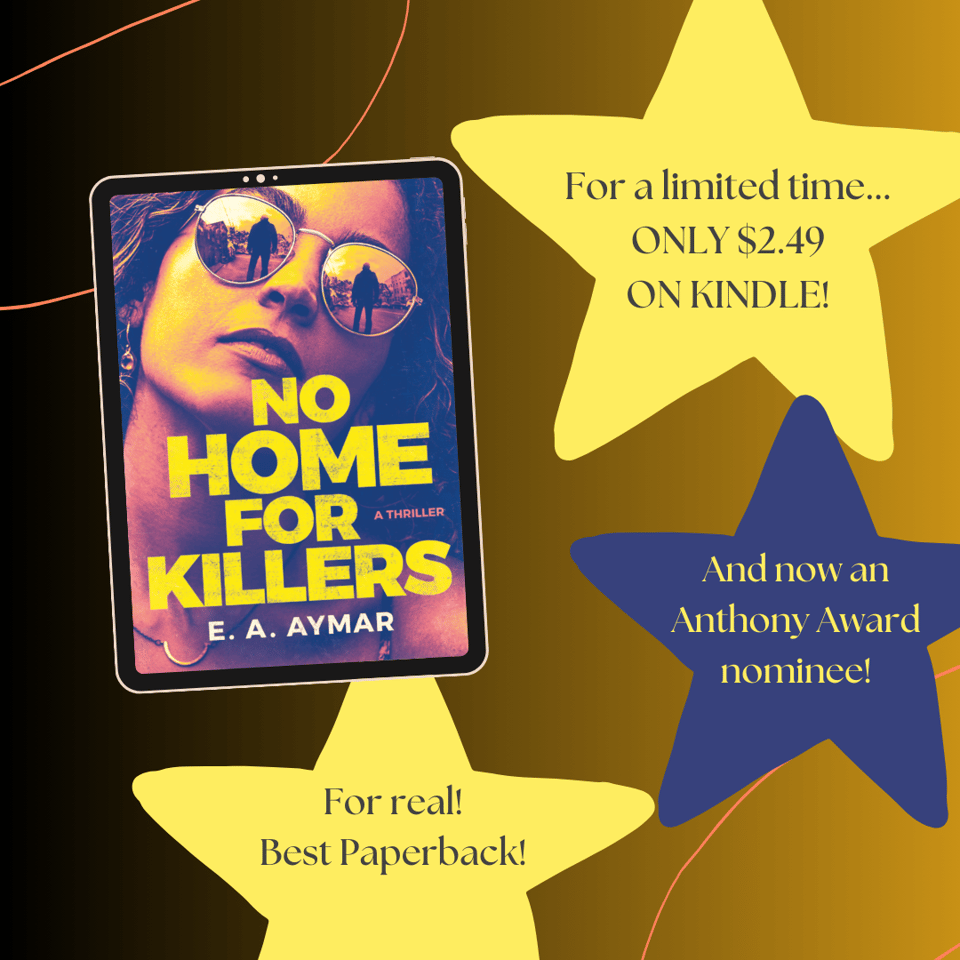Our Inevitable Robot Overlords


Why isn’t everyone happy about our incoming AI overlords?
I know, right? It’s weird. The other day I was watching a fight on social media play out between a writer who hated AI and everything about it, and another writer who used AI and was extolling its benefits. This is pretty common now on social media. It’s kind of our thing, in between desperately begging people to buy our books and making sure we haven’t upset Kendrick Lamar.
Did you jump in?
Eh, I hate fighting on social media. But I did like a few of the posts from the writer against AI. You know, I’m pretty much a social media warrior.
But mostly I didn’t get involved since this isn’t a fight writers are gonna win.
You’re giving up the fight against AI? ALREADY? That was fast, even for a Dolphins’ fan.
In the sense that I plan to ever use AI for anything I write - no. Never. Not for crafting sentences or plots or summaries or marketing or anything, really. I enjoy the process of writing too much. That’s just me.
But I’ve been watching where writing is going, ever since AI was introduced, and I see three reasons why the AIpocalypse is inevitable.
This should be FUN!
I’m an entertainer! Anyway, here they are:
Writers who don’t use AI are destined to be a disregarded minority. You could speculate, safely (and, as usual, I’m employing little to no research here) that more books are being written with AI nowadays than not. Take into account how Amazon has been flooded with AI-produced content, and the number of writers openly using AI to plot or write their work. But consider, beyond that, how this is impacting generations. Schools are using AI in writing classes. Teachers are seeing paper after paper written by AI. Yes, there are writers nowadays who staunchly oppose AI within writing and find its use disgraceful, but I’d bet most the generation who replaces us won’t see these tools in that same light. And that new generation will be actively writing and publishing within the next 10-15 years.
Most readers won’t care. Some will, but most won’t, and chances are they won’t even know. This isn’t a knock on readers, but rather a testament to the limitations of published writing. The reason news sites and marketing companies can already use AI to write content (appropriately named, in this case) is partly because of how advanced AI already is, but also because journalism and marketing copy generally aren’t examples of sophisticated writing. Which isn’t to say they’re bad, but rather those forms are widely used and imitated. In journalism, the general form is a reduction of personality to pose objectivity; in marketing, it’s a universal appeal. Almost by design, both forms are easy to reproduce.
And both forms lend themselves, directly, to commerce. And commerce, as Apple demonstrated in this disastrous little ad, has little to no interest in sustaining art. The important thing to realize is that, as truly wondrous as AI can be for a number of fields, its current use cannot make art better - it only makes it easier and faster. I bolded that, because it’s something we forget in these debates. AI produces art at a faster pace, but not a better one. And, for art, faster is rarely better. This isn’t true with marketing or most journalism. Or, for that matter, for a lot of published books. The lowest common denominator of writing is the one being eviscerated by AI.
Publishing won’t have our back. That seems harsh, and it is, and it’s also somewhat unfair. Hear me out.
Most of the people I’ve met in publishing deeply care about writing, and love it as much as writers do. The editors I’ve worked with have been wonderful, at every step of a project. They don’t get paid much and are asked to do an incredible amount of work and they always have more to do and they have to deal with writers (we’re the worst) and, despite all of that, the ones I’ve worked with have been absolutely lovely. They’re heroes within the writing world.
And many of them are worried. Freelancers are losing their jobs to AI, as are translators, illustrators, audio narrators, and others who were fixtures in publishing. And the heads of companies, who see layoffs as a sign of business growth rather than a glaring example of their own incompetence and failure, are already forcing AI to be incorporated into the workforce - with the stated goal of eventually hiring less people.
I know quite a few people in publishing share my love of the humanity that goes into a book. Some of the best things I’ve written were in partnership with an editor. But if the financial cost of that moment can be eliminated by software, then this is something most publishers will embrace.
I’d love to be wrong about that. And perhaps I’ve missed something but, despite all the declarations of writers who have vehemently denounced using AI in writing, I have yet to see the same passion from the people (by which I mean company statements) who publish their books.
That sounds bleak. STOP BEING BLEAK.
Oh, right, sorry! There is a bright spot.
I’m waiting!
I do think everything above is going to happen. But here’s the thing, and I’ve said this before.
If you care about your writing, none of this matters.
Yay. Problem solved. Good work, everyone.
Don’t minimize that, it’s important. That’s our magic, and it always has been, as writers. No matter what the world throws at us, we can always retreat into our stories. Great works have been written because of wars, through depressions, hidden in closets or attics, in prisons. Nothing can stop you from writing the story you want to tell, or finding that moment of beauty when you know it’s been told well.
You can still write the stories you want and, most importantly, how you want. Others won’t, but it really doesn’t matter. We can’t police the world, nor should we. What we can do is write how we believe best, and continue to do so.
As always, we simply need to persist.

EA

My thriller No Home for Killers (conceived and written outside of the matrix) is still on sale (US-only) for just $2.49 on Kindle!
It was also recently announced as a nominee for this year’s Anthony Award, and I’m so thankful for everyone who nominated it. An Anthony nod is such a great honor! Thank you.



Missing White Woman, by Kellye Garrett
It was supposed to be a romantic getaway weekend in New York City. Breanna’s new boyfriend, Ty, took care of everything—the train tickets, the dinner reservations, the rented four-story luxury rowhouse in Jersey City with a beautiful view of the Manhattan skyline. But when Bree comes downstairs their final morning, she’s shocked. There’s a stranger laying dead in the foyer, and Ty is nowhere to be found.
A Black woman alone in a new city, Bree is stranded and out of her depth—especially when it becomes clear the dead woman is none other than Janelle Beckett, the missing woman the entire Internet has become obsessed with. There’s only one person Bree can turn to: her ex-best friend, a lawyer with whom she shares a very complicated past. As the police and a social media mob close in, all looking for #JusticeForJanelle, Bree realizes that the only way she can help Ty—or herself—is to figure out what really happened that last night.
But when people only see what they want to see, can she uncover the truth hiding in plain sight?
Dodge and Burn, Ellen Crosby
When billionaire philanthropist and art collector Robson Blake hires Sophie Medina to take photographs for him, she doesn’t expect to show up and find her client dead. It seems he was the victim of a burglary gone wrong. But why was his state-of-the-art security system turned off . . . and why, in a house full of priceless Old Masters, is the only thing missing a beautiful but insignificant Ukrainian religious icon?
Before long, Sophie finds herself in the crosshairs of a D.C. homicide detective who suspects she knows more than she is saying about Blake’s murder – and he’s not wrong. To Sophie’s mixed delight and horror, she’s recently learned she has a half-brother…who might also be an international art thief, with eyes on Blake’s collection.
As the police get closer to finding Blake’s killer, Sophie is certain someone is trying to frame her for his murder. Can she find the real killer in time – even if it means turning in her own brother to prove her innocence?
The Deepest Lake, Andromeda Romano-Lax
Rose, the mother of twentysomething aspiring writer Jules, has waited three months for answers about her daughter’s death. Why was she swimming alone when she feared the water? Why did she stop texting days before she was last seen?
When the official investigation rules the death an accidental drowning, the body possibly lost forever in Central America’s deepest lake, an unsatisfied Rose travels to the memoir workshop herself. She hopes to draw her own conclusion—and find closure. When Rose arrives, she is swept into the curious world created by her daughter’s literary hero, the famous writing teacher Eva Marshall, a charismatic woman known for her candid—and controversial—memoirs. As Rose uncovers details about the days leading up to Jules’s disappearance, she begins to suspect that this glamorous retreat package is hiding ugly truths. Is Lake Atitlán a place where traumatized women come to heal or a place where deeper injury is inflicted?
Hall of Mirrors, John Copenhaver
In May 1954, Lionel Kane witnesses his apartment engulfed in flames with his lover and writing partner, Roger Raymond, inside. Police declare it a suicide due to gas ignition, but Lionel refuses to believe Roger was suicidal.
A month earlier, Judy Nightingale and Philippa Watson—the tenacious and troubled heroines from The Savage Kind—attend a lecture by Roger and, being eager fans, befriend him. He has just been fired from his day job at the State Department, another victim of the Lavender Scare, an anti-gay crusade led by figures like Senator Joseph McCarthy and J. Edgar Hoover, claiming homosexuals are security risks. Little do Judy and Philippa know, but their obsessive manhunt of the past several years has fueled the flames of his dismissal.
They have been tracking their old enemy Adrian Bogdan, a spy and vicious serial killer protected by powerful forces in the government. He’s on the rampage again, and the police are ignoring his crimes. Frustrated, they send their research to the media and their favorite mystery writer anonymously, hoping to inspire someone, somehow, to publish on the crimes—anything to draw Bogdan out. But has their persistence brought deadly forces to the writing team behind their most beloved books?
In the wake of Roger’s death, Lionel searches for clues, but Judy and Philippa threaten his quest, concealing dark secrets of their own. As the crimes of the past and present converge, danger mounts, and the characters race to uncover the truth, even if it means bending their moral boundaries to stop a killer.

It's giveaway time! The winner of a copy of any of the books listed above is:
Congrats, and I'll send you an email soon!

I wrote two reviews for The Washington Post in between newsletters. The first was for Hunted by Abir Mukhurjee and the second was for Walter Mosley’s new Easy Rawlins mystery, Farewell, Amethystine. Really a pleasure to read and review these books! I don’t write negative reviews (if I don’t like a book, I just put it aside and leave it someone else), and finding new ways to praise deserved novels is a fun muscle to flex.
As always, thanks for reading and, for those of you celebrating a holiday weekend, I hope you have a restful day.
-
Just need to point out a coincidence about the book recs you're offering (all good choices). But it entertains me that two of your recommended authors, Ellen Crosby and John Copenhaver, have written books called "Dodge and Burn." Anyway, as always, good (if kinda depressing) newsletter!
-
Sorry it won't let me delete these multiple comments.
Add a comment: